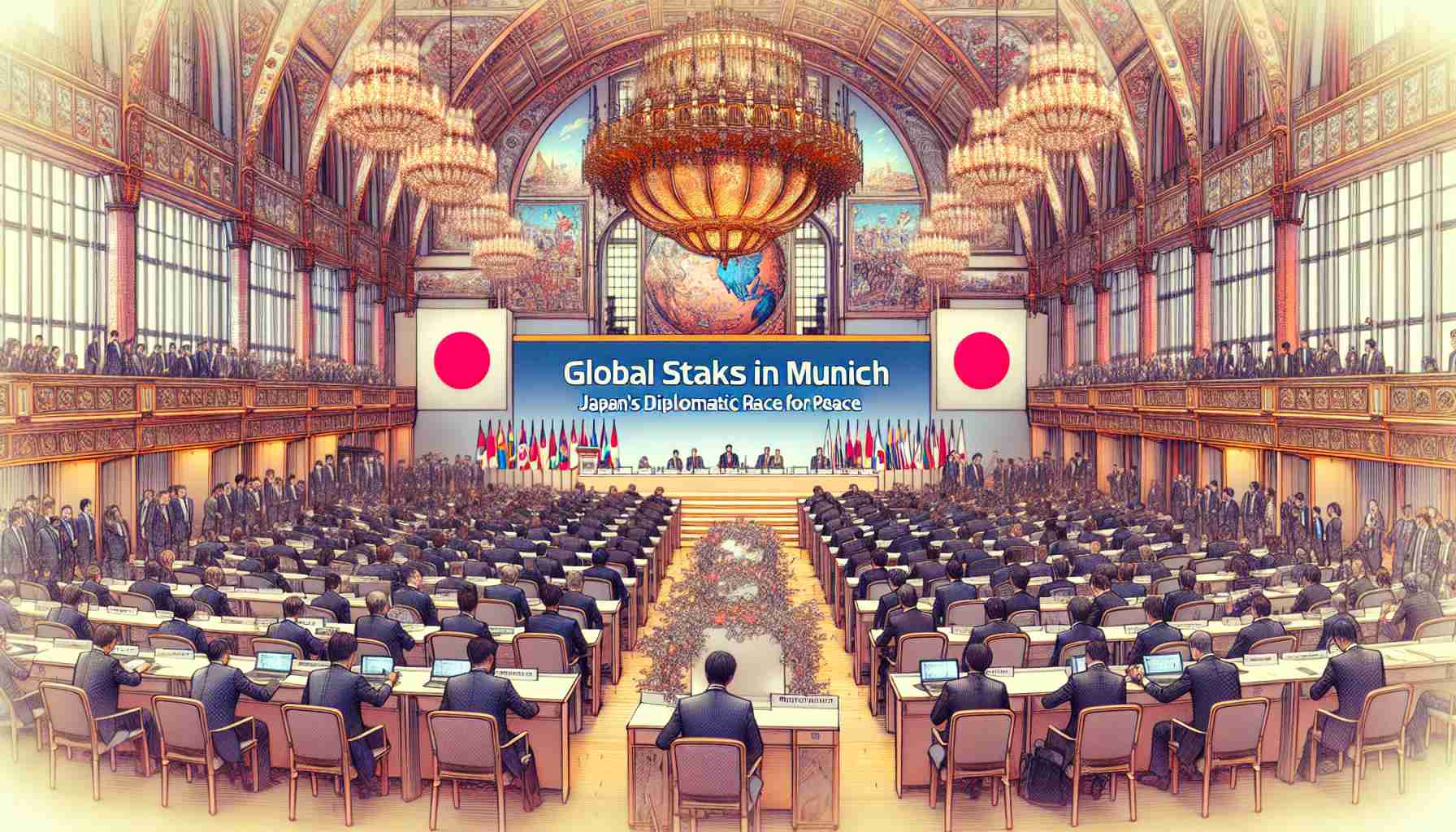- Foreign Minister Iwaya attends the Munich Security Conference amidst significant diplomatic activity.
- The G7 foreign ministers meeting is pivotal, focusing on Ukraine’s unrest and seeking new paths to peace, encouraged by Trump’s administration.
- Japan advocates for fair and sustainable peace solutions while providing robust reconstruction support for Ukraine.
- A key trilateral meeting between Japan, the US, and South Korea assesses regional security concerns, including North Korea’s nuclear activities and Russian military alliances.
- Iwaya’s presence underscores Japan’s commitment to international collaboration for global stability and peace.
A flurry of diplomatic activity descends on Munich as Foreign Minister Iwaya prepares to navigate tense geopolitical waters. As snow dusts this historic city, the prestigious Munich Security Conference commences, drawing ministers and top officials from around the globe. Amidst the hustle, Iwaya sets his sights on several pivotal meetings that could shape international responses to ongoing crises.
One key meeting on the agenda is the G7 foreign ministers gathering, a critical engagement since the inauguration of the Trump administration. Here, Ukraine’s escalating unrest emerges as a burning issue. Trump’s vocal eagerness for swift conflict resolution urges participants to consider new pathways toward enduring peace. Iwaya steps into this dialogue, poised to advocate for Japan’s commitment to fair and lasting peace and robust reconstruction support.
Simultaneously, an unprecedented trilateral meeting between Japan, the US, and South Korea captures attention. These allies revisit their shared concerns following recent confirmations of regional cooperation at a high-stakes summit. The rise of North Korea’s nuclear and missile endeavors, coupled with unpredictable Russian military alliances, prompts these nations to unify their strategic approaches.
Under Munich’s somber skies, Iwaya’s diplomatic endeavors transcend mere discussions; they form part of a larger mosaic of international collaborations aimed at restoring global stability. As these talks unfold, the international community watches keenly, anticipating solutions that might quell looming threats. In these efforts, Japan’s steadfast resolve emerges—committed to weaving a tapestry of peace and partnership amidst the world’s ceaselessly shifting dynamics.
The Hidden Dynamics of the Munich Security Conference: Insights and Implications
An In-Depth Understanding of the Munich Security Conference
The Munich Security Conference (MSC) serves as a crucial forum for addressing pressing global security challenges. Its role extends far beyond mere discussion, facilitating both formal and informal diplomatic exchanges that can influence international policies and strategies.
# Key Aspects and Features
1. Global Participation: The MSC attracts key figures from governments, military organizations, and private sectors worldwide. This includes foreign ministers, defense ministers, and policy experts who contribute to a diverse dialogue on security-related issues.
2. Agenda Setting: The conference sets the stage for addressing complex geopolitical issues such as international conflicts, defense policies, cybersecurity threats, and the impact of climate change on security.
3. Historic Significance: Established in 1963, the MSC provides a longstanding platform for international diplomacy, commemorating and fostering cooperation amidst global tensions.
Japan’s Role and Strategic Objectives
Japan, represented by Foreign Minister Iwaya, is actively engaged in the MSC with a focus on several key objectives:
– Advocation for Peaceful Resolutions: Japan is committed to promoting peaceful dialogue and sustainable reconstruction efforts, particularly concerning ongoing conflicts like those in Ukraine.
– Strengthening Alliances: By participating in trilateral talks with the US and South Korea, Japan seeks to bolster cooperative strategies against shared threats, such as North Korea’s military ambitions.
Questions and Insights
How does the Munich Security Conference influence global policies?
The MSC functions as a think tank, where influential leaders can propose and negotiate solutions, creating frameworks that often inform national and international policies. Decisions and alliances formed here can shift global geopolitical landscapes.
What are the pros and cons of participating in such conferences?
– Pros: Offers a unique opportunity for diplomacy, the establishment of alliances, and conflict resolution. It also helps in gaining insights into other countries’ security policies.
– Cons: Potential limitations include the challenge of reaching consensus amidst diverse political agendas and the complexity of translating discussions into actionable policies.
What are the current trends and predictions in global security as highlighted at the MSC?
Recent trends reveal an increased focus on digital security, climate change implications, and the changing nature of military power with advancements in technology. Strategic forecasts predict a rise in multilateral cooperation to counter these evolving threats.
How is Japan’s involvement perceived on the international stage?
Japan is often seen as a stabilizing force, advocating for peace and cooperation. Its active engagement in international diplomacy through the MSC and other platforms reinforces its image as a committed proponent of global stability.
# Related Domains
To deepen knowledge on the Munich Security Conference and its global impacts, visit Munich Security Conference. For insights into Japan’s foreign policy, explore Ministry of Foreign Affairs of Japan.



















